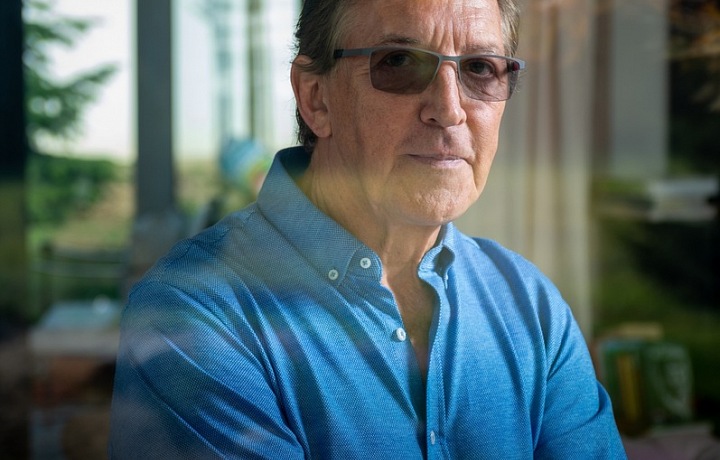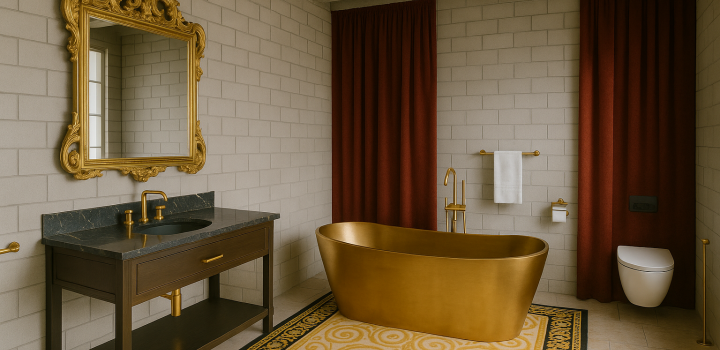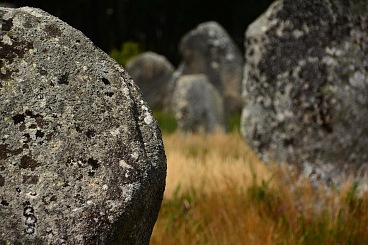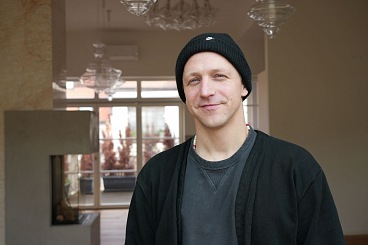Fast Confession - architect Ján Strcula: An architect shouldn't talk much, a project must speak for itself
Ján Strcula got into the University of Architecture in Bratislava because of his friend, basically by chance. He himself claims that during his studies he had no idea what the world of architecture was all about. Yet still, at just 26 years old, he won a competition for a house that became an iconic building in Bratislava. And then it all began. France, the USA, Algeria and also Kuwait. It was in Kuwait that he settled down for a while. He built banks there, private residences of sheikhs and four Kuwaiti embassies. One of his latest projects is "Black Roofs" - economical houses with smart home technology. Even pushing eighty, he hasn't lost his passion for architecture and keeps on working.
You have a degree in architecture... Why this field in particular?
It was a complete coincidence. I was drawn to sports and music, I wanted to be a professional athlete. During a basketball game, a friend asked me which school I was going to apply to. I didn't know. He told me he was going for architecture, so I went with him. It's a little pathetic, but that's how it went down.
Somehow I can't believe it was that "simple". Was there really no deeper relationship?
I swear not.
So basically youthful recklessness introduced you to the world of architecture.
That's exactly how I would define it. And I can confirm to you that during my studies I had no idea what it was about until the fourth year.
How is it possible, not until four years of study?
The studies were so complex, and they involved an awful lot of disciplines. In the third year, I failed the statics exam several times. I couldn't calculate the tension on the spherical cap. I wouldn't ever need it in my life, but I couldn't be an architect without knowing how to do it. And so it went on and on. Lots of things, that then work completely differently in practice.
Was there a moment during that study when you wanted to give up on it?
That's what comes with that student life. I played music, so I enjoyed it. And you took exams because you wanted to prove that you could do it. I didn't have many opportunities to give up on it.
And what happened next? What does a young architect do after studies?
When I was 26 years old, I won a contest for a house, which became an iconic building in Bratislava. It was a 27-storey house, at that time (1972) apartment blocks only went up to eight floors. That was the first thing I was scared of. I wondered why others weren't doing it. And then it was always about the same thing, so I wanted to try it behind the fence. See what it looked like there. And that's where it started.
And where did it start, your journey?
I was invited to work on urban planning in the French Congo. It was interesting, the environment had long been governed by the French and French culture, I learned a lot there. I could also travel, so I got to know other countries. Then the United States came, and when I returned I was taken to Algeria.
I have been captivated by your work in Kuwait, where you worked for the royal family, among other things...
Yes, yes. In that case, the hardest part is getting there, getting chosen. Then it's quite simple, everyone can do it.
So it's basically about relationships?
Exactly. You have to be socially acceptable, so they'd want to talk to you at all and see that you are the one who will build their home for the big money. The most important part is getting into such a company.
And how did you get there?
I call those stories or coincidences "divine management". I came across many interesting projects this way. Of course, you have to have something to offer socially and professionally. And then the familiar thing - to be in the right place at the right time. I planned ahead only in a rough way, and those opportunities arose. Chance? I don't know and I don't feel the need to define it. I guess that's how it should be.
From which of your journeys and opportunities did you learn the most?
All of my work placements have been very educational in each country. But Italy still remains at the top after a four-year stay in terms of creation and overall cultivation. I like to work with many Italian manufacturers and it is always a significant contribution to my life.
What factor influences the work the most? What do you look at first?
It's always about context. In what space and culture it is located. Whether it's a big city or the outskirts of the city and the like. It also depends on the program. Whether it's a bank or a residence. And then you have to give it the most important thing, that's what I call a script.
How is a script inserted into architecture?
For example, I did one of the projects by basically gradually walking and uncovering things. That's what it's based on. What should an intimate drawing room or a swimming pool look like? Another scenario may be the opposite perspective - at one end of the room, the floorboards were 15 centimetres long, and 15 meters away, they were 1.5 meters long. It is a way of creating an illusion - what we see, we believe in, and we have unusual experiences from a certain place. I've put it simply, there are hundreds of those scenarios.
How big is the difference between commercial and residential architecture? Do you have more freedom in either of those?
I never have complete freedom because I am always limited by criteria. First of all, financially. Even most economically-minded people have their budget, often far stricter than someone who has less money. In that commercial sphere, it's about the institution. There are 12 managers, everyone has their own opinion, but no one takes responsibility. Any advice must be pushed through with a commission and so on. So the result is always very skewed. It's a little different for a private individual. You explain to such a client that the expensive special marble floor will cost a lot. Then, when we implement it, the owner will agree that it was a good investment and added value.
So that's a nice satisfaction...
Yes. It's mainly about persuasion. Because that's the hardest way.
If the client comes up with his idea and it doesn't fit into your context, will you reject them?
They won't even get to that, to be frank. I spend at least a month with each client, I call it a training course, during which we talk about what is being done and why. I show them examples. And most of the time, they come to me with the fact that they have seen some of my work and want something similar. Then I'll do something similar for them, but it's always a little different.
So each work is completely different? Don't you have a style that changes just slightly?
Each work is different. I probably wouldn't call it a style, but approach. There are certain principles that I know are good and are good especially for the client. And I know it will be used, not enjoyed visually, that is wrong.
Why is that wrong?
Visual enjoyment is not a criterion. It's an emotion. First, it has to work well. If it works, you will like it.
Where do clients make the biggest mistakes?
I have this saying: "A client who does not have ears and a spirit cannot be my client." These are people who come and say let's make it nice. That's not how I do it. I always start with the question "Why did you choose me?", Not what they want from me.
But where do you keep coming up with new ideas after so many years?
I keep getting inspired. I look and wonder how I would be likely to handle this or that. That's 26 hours of work. Because even when I'm asleep, I dream about it. Talking isn't an architect's business, an architect has to draw the desired object, which should then speak for itself.
Do you have your "favourites"? Projects you like to work on the most?
Each project is a favourite of mine. Whether it's a piece of furniture or a large house, it's the same.
Where do you think the Czech Republic stands when it comes to architecture?
Everything that can be seen in Prague was quite a large economic investment. For example, Charles Bridge and later buildings. If there is no economic power, then it cannot be glued from temporary buildings. For example, in London you can feel the economy, the modern buildings and modern technology. They still can't pay for that here. But interesting things do pop up, we have to look for them, but they are here.
Two years ago, you came up with the "Black Roofs" project. An economical house concept with smart home technology. Is this exactly where the future of architecture lies?
Certainly, we just need to do it rationally so that we don't have too much technology in there. So it depends a lot on the choices, so that the technologies are not more expensive than the construction itself. We do this mainly for people to have a comfortable living.
What is the biggest advantage of this?
It is for those who want to return home, and remotely set the conditions they want after arrival, for example. It will be neither hot nor cold at home. So one can prepare the space as one would like in advance.
And won't there be too much technology in the future? Are we not really good now as we are?
People will figure this out for themselves. For projects of mid-range luxury houses, I always suggest technologies that they could have there, not ones they should have there.
A luxury house. What does that actually mean today?
When you approach the house from a distance, it has value. First its aesthetic value, and then it must resonate with the environment where it is located. Then it's about more valuable materials. It is different when you make a floor for somebody from an imitation of cheap floorboards than when you make it from quality wood. The price might increase up to tenfold in some cases. It's the same with everything. Windows, lighting... So it's about the complexity of the work in quality.
With the way you travelled and worked, was there any room for anything else?
I was living too. I enjoyed life to the fullest as much as I could and did not miss anything in a big part of the world.
But you can say you're a workaholic...
I wouldn't say that. But when I do something, I give it my all. For example, when I was in Kuwait, I was in one company and we were creating a new city. A British company arrived with whom we had our first session. There were plenty of us there and I was kept waiting for someone to draw something. So I started scribbling on paper. The director of the company asked what I was doing there and when I showed him, he said BINGO and we started. So it's mainly about effort.
With all your achievements, you are already entitled to hang architecture up. Have you thought about it?
What else would I do? I've considered it a few times. But then I watch what others are doing and think about doing it completely differently. And I'm back in it!











